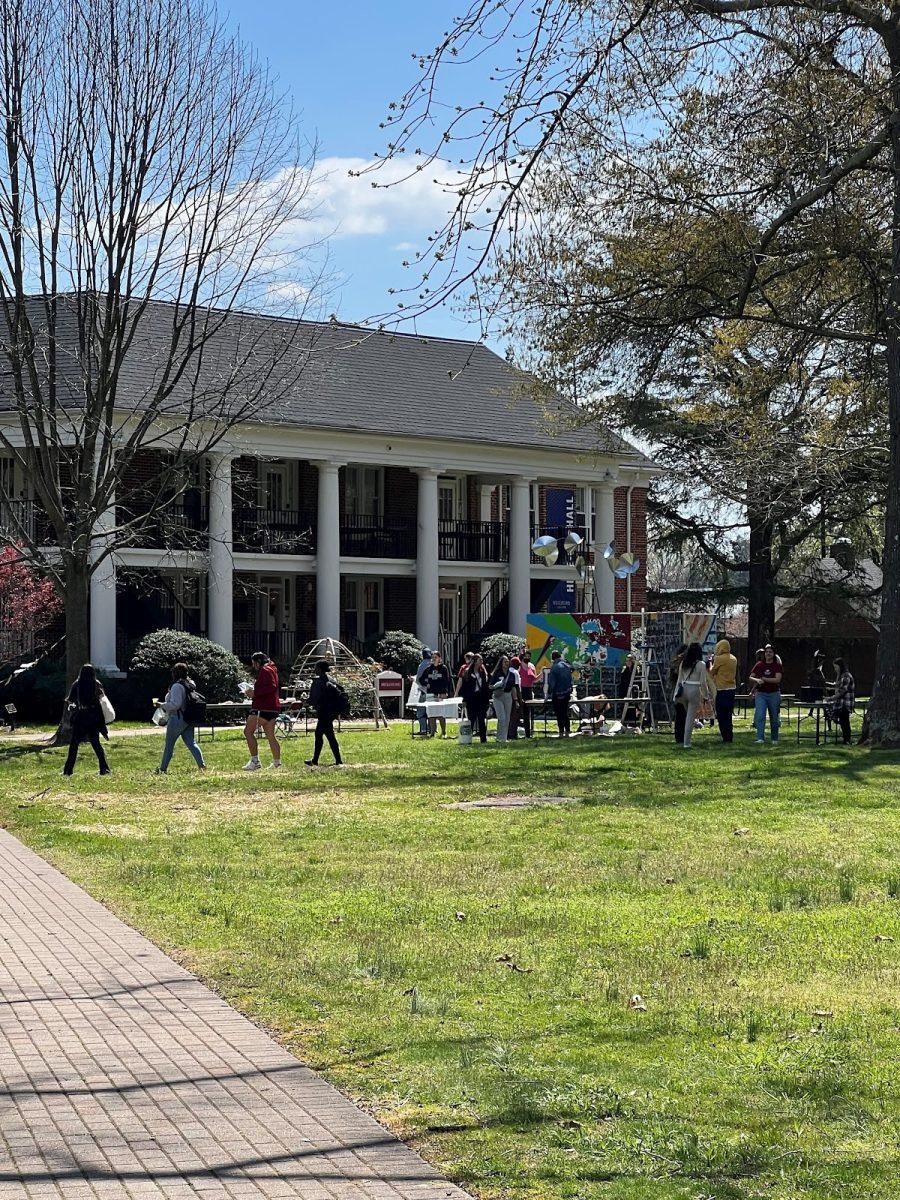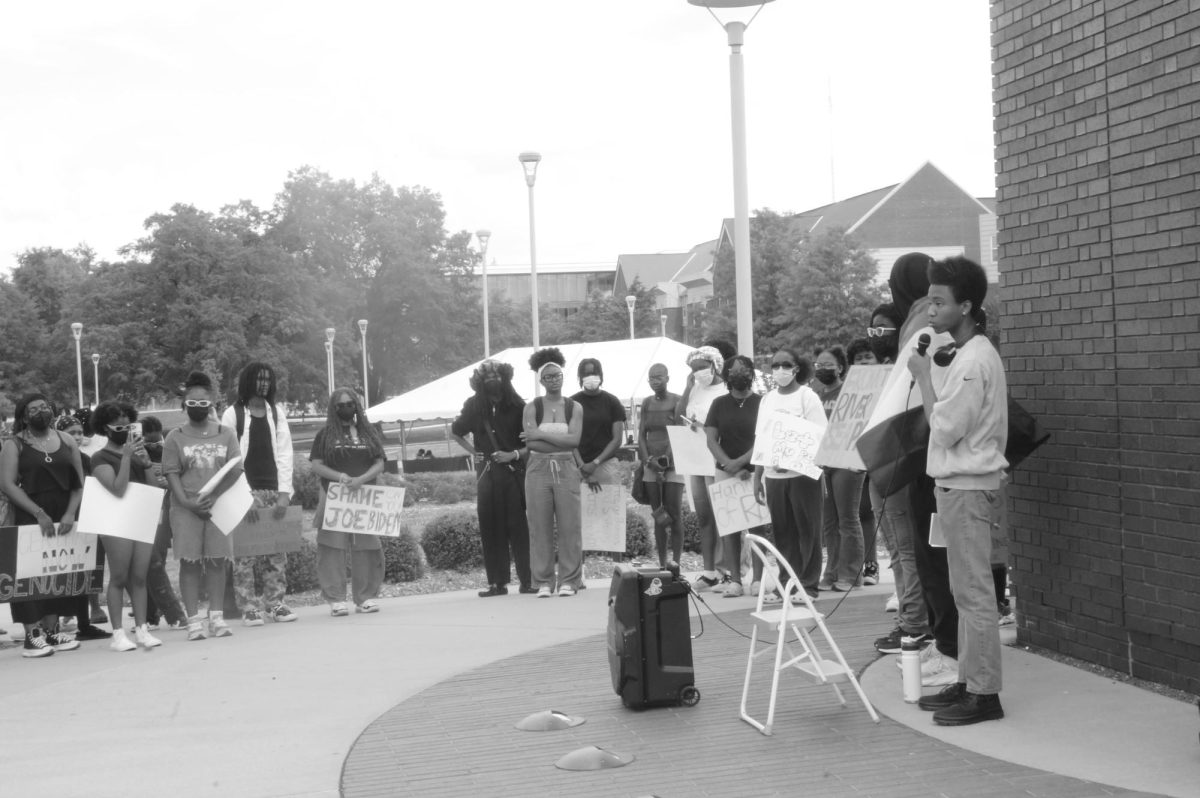No one wants to be the proverbial “red-headed stepchild,” including those at the Center for Continuing Education, where there has been speculation regarding what the recent cuts in financial aid will mean for in-state students.
Some say that CCE might be further distanced from the college due to recent financial aid cuts, an idea which Guilford administrators say could not be further from the truth, even though the college will be losing around $2 million, once mostly brought in by CCE students.
A professor who wished to remain anonymous told The Guilfordian that the there might be a shift in perception and support for CCE at Guilford due to financial changes. The professor said that CCE might be of lesser value to Guilford, considering that CCE — once regarded as a “cash cow” — will no longer bring in excess money through NC grants.
However, President and Professor of Political Science Kent Chabotar told The Guilfordian that recent cuts would not devalue CCE, even in the face of financial crisis.
“Having adults on campus is about education and community service just as it is for other students, especially from North Carolina,” said Chabotar. “CCE enrollment helps balance potential losses in the more price-sensitive traditional market.”
NC financial aid funds awarded to Guilford on the basis of the number of CCE students were being redistributed to traditional students with financial need — that was until the state of North Carolina cut the program altogether.
Chabotar said that even before the state-funded aid cuts, the college updated a 2004 cost study that examined the net financial contribution of each population: traditional on-campus, traditional off-campus, CCE, and the Early College Program.
“Each population pays different prices on the revenue side and uses different services on the cost side,” said Chabotar. “Because we are not 100 percent tuition dependent, and in fact even after counting financial aid subsidies (to) the average student due to endowment and gifts, we ‘lose’ money on every student.”
With financial setbacks, not even Guilford is immune from cutting jobs or ranking departments by priority, if necessary. The college is not impervious to fears that accompany potential changes, either — changes are a part of any budgetary restructuring and essential for strategic planning, according to Guilford administrators.
Former Guilford student Starlet Tetteh said that there are already real divides between CCE and traditional students, so financial distress could easily add to any false perception, especially due to the number of North Carolinians who are enrolled through CCE.
“As a freshman, I thought being in classrooms with CCE students robbed me of a true traditional experience,” said Tetteh. “As I got older, I realized how selfish a thought that was. We are all the same, though I’m sure those perceptions still remain with some traditional students.”
Tetteh’s thoughts may not fall far from their mark. A recent Guilfordian poll showed that 98 percent of the 117 students who participated thought there was an apparent social divide, indicating varying forms of separation between the groups, which Tetteh said was commonplace.
“Though I’m sure many adult students are of a different mind than traditionally-aged students — I don’t think it bothers CCE students that much,” said Tetteh. “They want to get their degree and move on with life — I know I do.”
Guilford administrators said that while there might be a social divide between CCE and traditional students, each group is highly valued by the college.
Vice President of Admissions Randy Doss told The Guilfordian that his office does not foresee the value of CCE diminishing anytime soon.
“Guilford has the oldest adult degree program in North Carolina,” said Doss. “I expect CCE will always be a part of Guilford. I believe educating adults is still very important to Guilford.”
Associate Vice President and Dean for Continuing Education Rita Serotkin told The Guilfordian that though CCE students will lose financial aid, which will cause some students not to complete their education, CCE would thrive.
“We are finding new ways to reach out to adult students in North Carolina,” said Serotkin. “I’ve had nothing but support from Kent in keeping the CCE program alive.”
While the full effects of the potential financial crisis has yet to be seen, there are some like CCE SGA Vice President Julius Ross who don’t give a whit about the perceived CCE and traditional divide. Ross just wants what’s best for Guilford and hopes eventually politicians will help colleges rather than harm them.
“I’d like to believe that our leaders in the North Carolina General Assembly will see that they are going wrong by hindering education — there are other areas that should be cut,” said Ross. “They might not admit they are mistaken, but they may offer a solution, which I hope is the case.”






